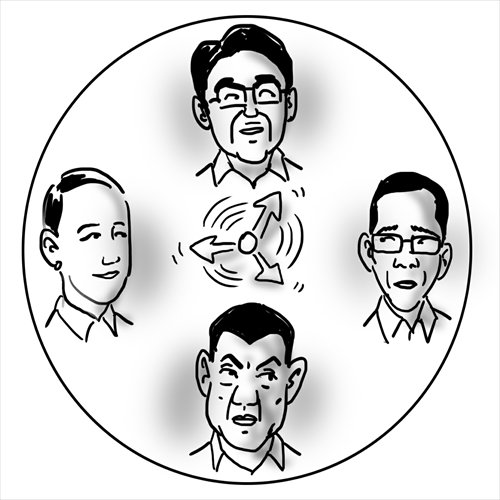New leader in Manila may soothe Beijing ties

Illustration: Liu Rui/GT
The Philippines is witnessing a hotly contested and complicated presidential election. With Benigno Aquino III to leave office in June, four presidential frontrunners, Senator Grace Poe, Vice President Jejomar Binay, Davao City Mayor Rodrigo Duterte, and Mar Roxas of the ruling Liberal Party, are fiercely fighting for the position.
Less than two months are left before the voting day, but it's still hard to predict who will win. Recent polls show that Poe is tied for the lead in the presidential race with Binay while Duterte and Roxas trail behind only by a small margin.
Poe, the adopted daughter of one of the country's most famous movie stars, obtained and then abnegated US citizenship. Her candidacy has been dogged by allegations that she is ineligible to run for presidency. But the Supreme Court of the Philippines endorsed her candidacy earlier this month, and the verdict is expected to further boost her popularity.
Poe's adoptive father, Fernando Poe, Jr. is a Filipino actor. He was defeated in the 2004 presidential election and later died, which will help Poe win sympathy. Unlike her powerful rival Binay, Poe has no track record of corruption scandals. All these will help her in her quest to be crowned president.
However, uncertainties still linger. Filipinos are susceptible to snap changes when making their voting decisions. Manila has been plagued by voter bribery for a long time, which could also add uncertainty to the election result. The election may be postponed due to lack of preparation by the Commission on Elections.
But one thing is certain - that the Philippines' China policy is facing a critical test.
Aquino's maneuvering against China, including filing a lawsuit against Beijing over the South China Sea disputes in international arbitral tribunal and allying with Washington and Tokyo to contain China, has won a certain degree of support. But noticeably, Manila hasn't gained any real benefits from implementing such measures.
The presidential candidates have reflected upon this. Except Roxas of the ruling party, Binay and Duterte have both expressed their willingness to negotiate with China on many occasions. Poe, despite being considered pro-US, on the one hand shows support to the policy of the current government, but on the other hand promises to engage China for deepening relations.
It's normal for a new president to change his or her policies. Even if Roxas, who is from the same party as Aquino, comes into power, his China policy won't necessarily be the same as that of Aquino.
A feature of Philippine politics is that political party plays a small role in policymaking while the individual style of politicians matters a lot. It's natural that the Philippines, gaining nothing from years of confrontation with China, will seek a different policy under a new leadership.
Two elements may exert an influence on the China policy of the next Philippine government.
First, the ruling of the tribunal, which is believed to be in favor of the Philippines, may come before the new president takes office, which will impact the bilateral relationship. Should the Philippine government keep a low-profile stance and take the verdict only as a bargaining chip, may China and the Philippines establish new interactions.
In contrast, if Manila keeps seeking support from the US and insists that China respond to the judgment but refuses any negotiations, it will further irritate China. China will have no other options but to strongly strike back and the bilateral relationship will risk being locked into a vicious circle.
Second, US President Barack Obama will continue his term till the beginning of next year. Obama has done a lot to woo ASEAN, the Philippines in particular, in order to consolidate the rebalancing strategy in the Asia-Pacific as part of his political legacy. He is expected to exert influence on Southeast Asian countries including the Philippines during his remaining tenure.
Obama could manipulate a range of topics such as the arbitration case and joint patrols in the South China Sea to escalate tensions in the region so that the Philippines could be tied to its chariot of its rebalancing Asia-Pacific strategy.
Given the factors abovementioned, hopes loom in Beijing-Manila relations in the latter half of this year, but not very much.
The author is an associate research fellow at the Institute of International Relations, Shanghai Academy of Social Sciences. opinion@globaltimes.com.cn